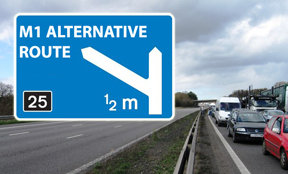
With staff shortages and industrial action causing chaos at airports across the UK and beyond, many passengers are turning to smart bags for luggage that includes tech such as trackers – allowing them to keep tabs on where their bags are.
But with smart bags typically including rechargeable batteries, it can easily fall victim to airline and CAA-imposed security and safety rules covering the likes of lithium batteries being carried on jets.
 Do you think that smart bags are
allowed in the luggage hold? Find out here (Credit: Pxhere)
Do you think that smart bags are
allowed in the luggage hold? Find out here (Credit: Pxhere)
Here is our guide to what popular airlines flying from the UK say about the carriage of such smart luggage – helping you to avoid having your bags refused permission to fly.
Aer Lingus
Smart bags will not be allowed on to flights if the lithium battery/power bank cannot be easily removed by the passenger.
The same will apply if the Wh rating of the lithium battery/power bank is over 100 Wh, or if this rating cannot be easily and clearly determined – for example, if it is not marked on the battery/power bank case.
If the lithium battery/power bank can be removed, the smart will be allowed to board if the lithium battery is removed and carried in the aircraft cabin with its terminals protected against short circuit.
In all cases, the lithium battery must have a clearly stated capacity of less than 100Wh.
Air Canada
Passengers can take their 'smart bag' onto the plane with you, provided it meets the stated size restrictions. If the plane is a smaller craft, it may need to be placed in the hold. This can only be allowed of the battery is removed and carried in the cabin with the passenger.
If planning to check-in the ‘smart bag’, the passenger will need to remove the battery and bring said battery into the cabin with them. The bag will not be loaded as checked luggage if the battery cannot be removed.
Air New Zealand
Smart baggage can be checked in if non-removable batteries contain no more than 0.3 g lithium or for lithium-ion does not exceed 2.7 Wh. Batteries must be removed for the baggage to be checked in, with the batteries carried in the cabin.
Smart baggage powered by lithium batteries can be boarded as hand-luggage if it complies with the airline’s size and weight limitations for carry-on bags.
Smart baggage is not allowed in the cabin of Air New Zealand Regional (turbo-prop) aircraft due to size limitations.
British Airways
If the lithium battery/power bank cannot be easily removed from smart baggage by the passenger, the smart bags will not be allowed on the flight.
If you can easily remove the lithium battery/power bank, the Smart Bag can be carried, if it adheres to the following conditions:
Lithium battery/power banks up to and including 100Wh are permitted for travel.
Lithium battery/Power banks of more than 100Wh up to 160Wh must adhere to the airline’s policy for such batteries.
If the Wh rating of the lithium battery or power bank exceeds 160 Wh, or the Wh rating cannot be clearly determined – i.e marked on the battery packing - the lithium battery/power bank will not be allowed on the flight.
If the smart bag is to be checked in, the lithium battery/power bank must be removed and carried in the cabin by the passenger with the terminals protected against short circuit.
If the smart bags will be carried in the cabin, the passenger must be able to easily remove the lithium battery/power bank, but BA says it can remain in the bag.
easyJet
If the Smart Baggage is to be carried in the cabin, the passenger must be able to easily disconnect and remove the lithium battery / power bank. EasyJet says the disconnected battery can, however, remain in the bag. Smart baggage won’t be accepted for travel if the lithium battery/power bank cannot be easily and quickly disconnected and removed by the passenger.
If the passenger’s smart luggage is to be carried in the hold, the lithium battery/power bank must be disconnected from the smart bags at drop off desk – with the battery taken into the cabin. Exposed terminals should be protected from short circuit. The lithium battery/power bank must be disconnected, otherwise it will not be allowed on the plane.
Jet2
No information available – Jet2 contacted for comment.
Ryanair
Passenger can take a smart bag’ on the aircraft as carry-on baggage. However, the lithium battery must be removed before the bag is overhead locker. The battery must remain on the passenger’s person at all times.
Smart bags can be carried in the hold as long the passenger can remove the lithium battery before depositing the bag in at the bag-drop desk or the gate. The passenger must then take the battery on the plane with them.
TUI
Smart bags with a lithium battery that cannot be removed must contain no more than 0.3g lithium metal or 2.7 Wh for lithium-ion.
If the smart bag is fitted with a non-removable lithium-ion battery that exceeds 0.3 g /2.7 WH, that item of luggage will not be permitted on the plane.
If the smart bag has a removable lithium-ion battery this must be removed and be carried in the cabin under normal terms and conditions for such an item.
Virgin Atlantic
Virgin Atlantic simply says smart bags are not allowed on board as hand luggage or checked luggage unless the batteries can be removed.
Wizz Air
No information available - contacted for comment
What are smart bags and what tech do they include?
- Tracking luggage: The bags contain tech powered by GPS, GPRS, Bluetooth, or Wi-Fi which means you can track where your suitcase is through a connected app.
- Proximity tracking: Some cases include this tech, which will let you know when you stray too far from your bags – a distance you can usually set. This will warn you if you leave bags in a cab, or if a case is stolen, or taken by mistake as you wait at airports, for example.
- Charging facilities: Smart luggage typically comes with built-in charging functions, allowing you to top up your devices while travelling and away from conventional power supplies.
- Built-in luggage scales: Some smart bags include a luggage scale within the bag handle. Picking up the bag will trigger the scale and tell you how heavy the bag is – especially useful when keeping to strict airline weight limits.
- RFID-blocking section: This is a compartment that is protected from those who may want to steal data from the likes of credit cards and phones. The compartment protects your tech from scanners that can steal your data from outside your bag.
Most read travel content
Take a look at more of our top travel-related news and guides here...
-
Do I need six or three months on my passport for Spain, France and other EU countries?
-
Who can sign my passport photo... can teaching assistants sign for kids?
-
How much are fast-track security lanes at UK airports and how to book them
-
Can my child fly if they have chicken pox? What the airlines say
-
What does SSSS on your boarding card mean and should you be worried?
-
Do I need a V103 certificate to drive my car abroad?
-
Do I need a new passport now I have put on weight, dyed hair, gone bald etc?
-
Get a driving licence check code for your holiday hire car
-
Find the cheapest petrol near motorways in France - interactive map
-
Are there any free drop-off points at UK airports?
-
How much does a new passport cost now we've left the EU?
-
How much are speeding fines and other driving offences in Spain? And will points go on my UK licence?
-
Can I change a name on a plane ticket and how much will it be?
-
The new speeding camera in France that 'catches everyone' - Nano Parifex revealed
-
Can I fly with a broken leg or other bone?
-
Is it possible to catch monkey pox on a plane?
-
How much are extra legroom seats on your flight - revealed here
-
Where can I charge an electric car at UK airports?
-
What airlines have defibrillators on their planes
-
What help is there for travellers with autism at UK airports?
-
Do I need to get a new passport if I move home?











